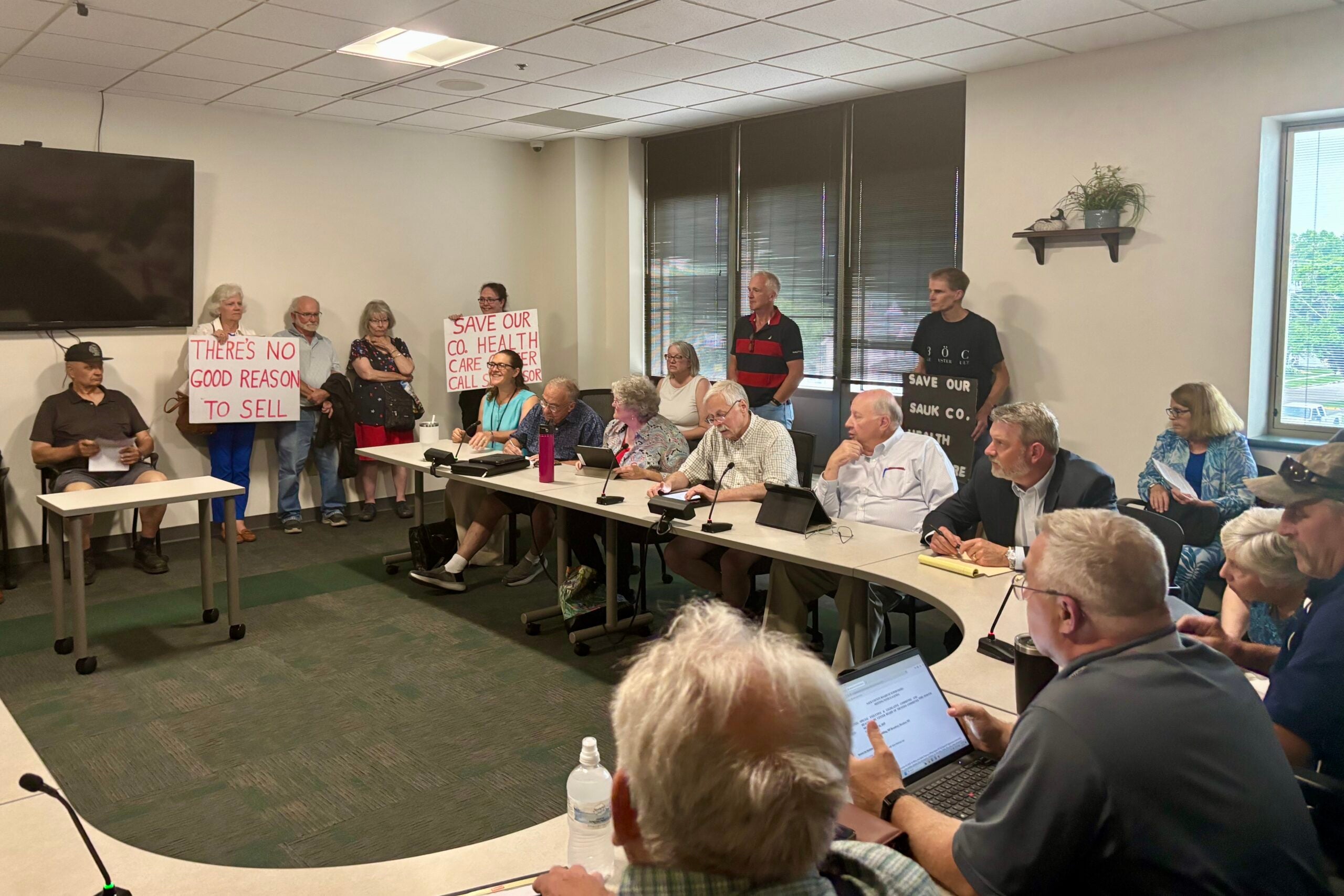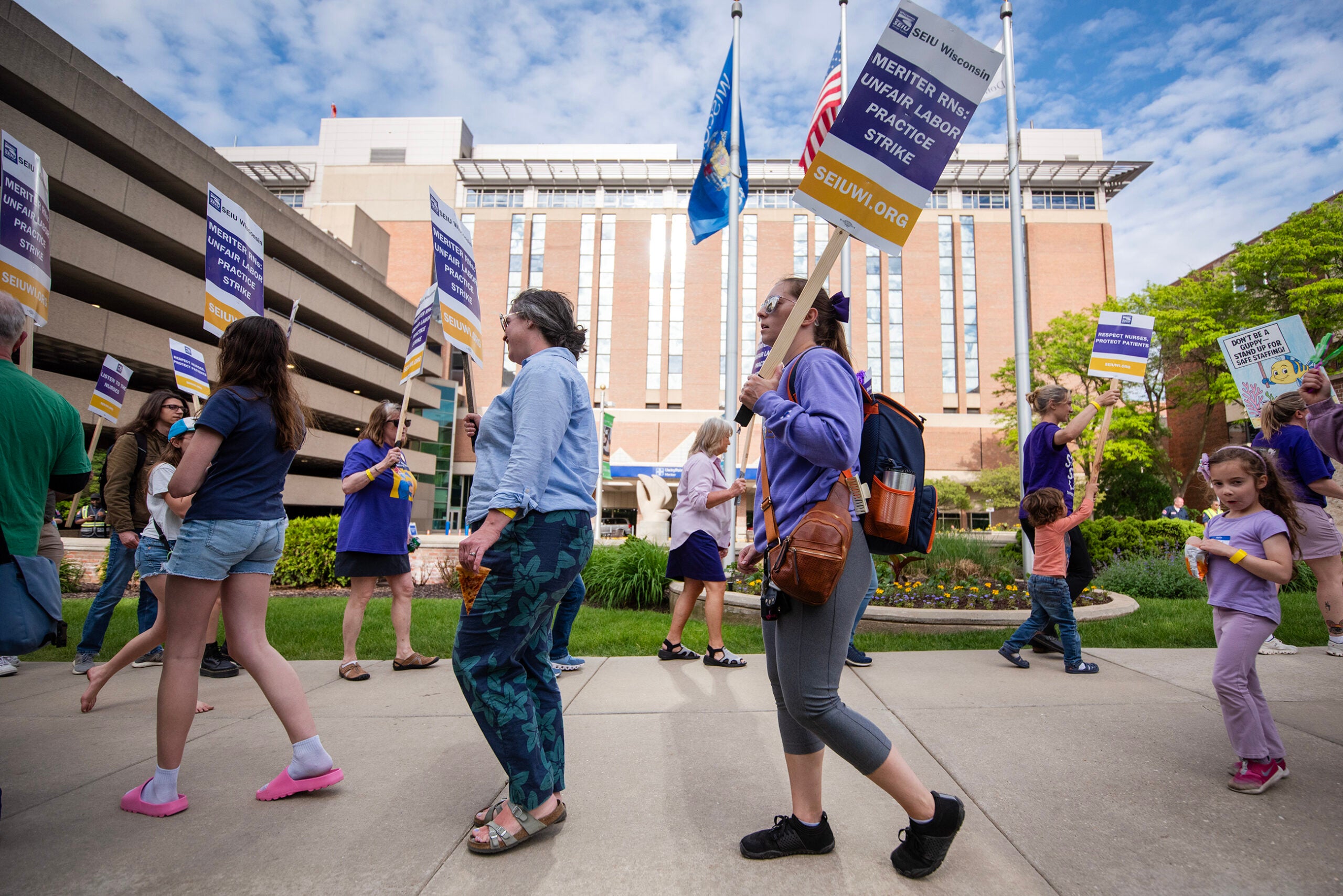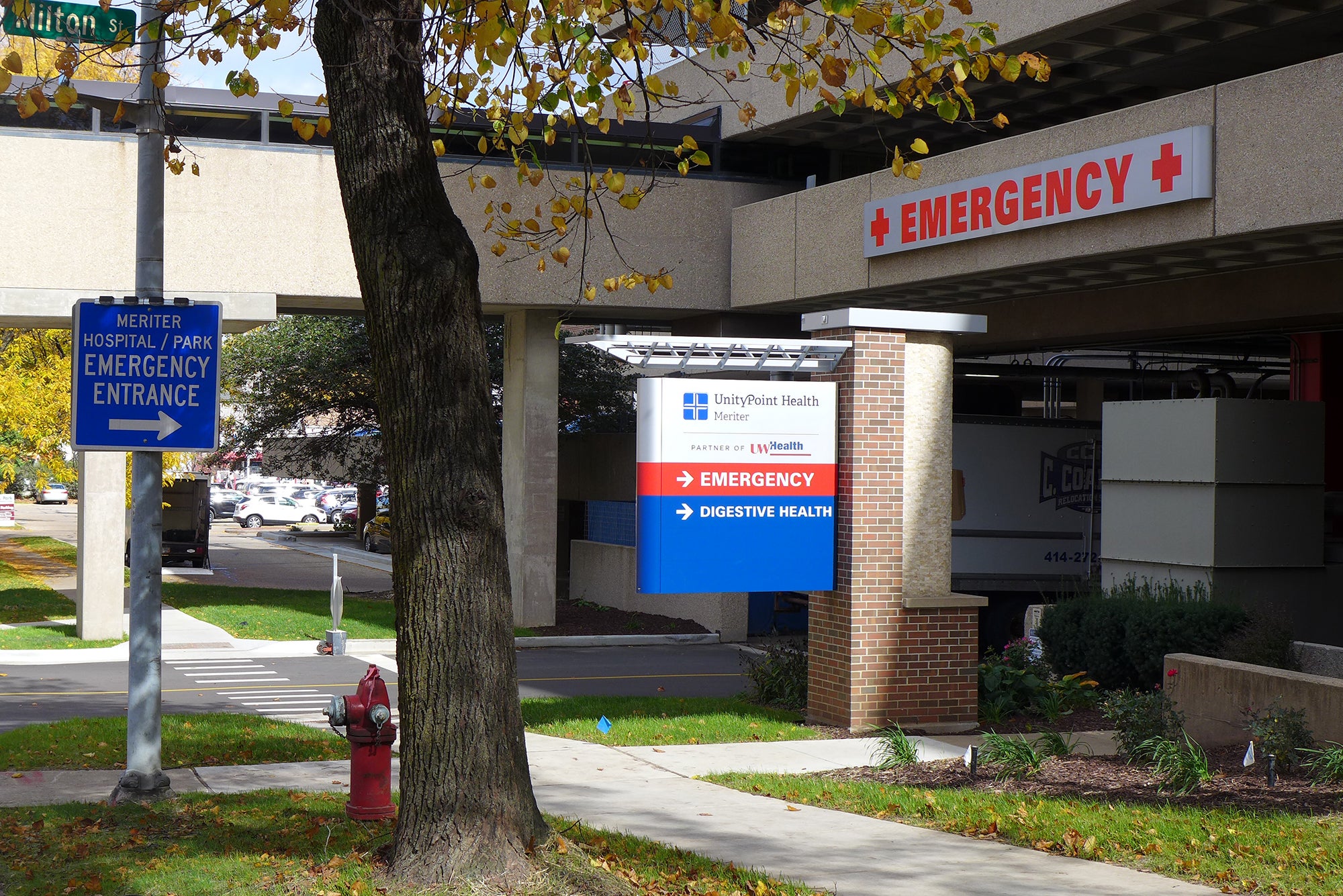Some Wisconsin nursing homes are struggling to get the support they need during the coronavirus pandemic. It could be contributing to the state’s looming shortage of hospital beds.
As of Oct. 7, the Wisconsin Department of Health Services was investigating 430 active coronavirus outbreaks at long-term care facilities across the state, including 186 at nursing homes.
At nursing homes, just one positive test for a resident or staff member constitutes an outbreak, which can prevent a facility from accepting new patients for up to 28 days.
News with a little more humanity
WPR’s “Wisconsin Today” newsletter keeps you connected to the state you love without feeling overwhelmed. No paywall. No agenda. No corporate filter.
But for some patients who no longer need the care of a hospital but aren’t yet ready to go home, nursing homes are the next stop after being discharged from the hospital.
And if a nursing home can’t accept new patients, it could mean a longer hospital stay. This can present a challenge for hospitals, which are nearing their limits as evidenced by Gov. Tony Evers’ announcement last week that Wisconsin will open a field hospital at State Fair Park.
“We want to be good community partners with hospitals, and it’s a tough time right now because if you look at the populations that long-term care providers serve, these populations are some of the most vulnerable to really having adverse health reactions if they do contract COVID-19. But with that in mind, it’s a public health crisis when hospitals are unable to admit new patients, because they’re at or reaching capacity,” said Jim Stoa of the Wisconsin Health Care Association.
The organization is working closely with public health officials to clarify the guidelines surrounding nursing home admissions so that facilities can accept new patients if they have adequate staffing, personal protective equipment and space to isolate residents who might have come in contact with the virus.
“There’s not a nursing home in the state that would admit a new resident unless they knew they could do it in a safe way, using the best information and data to ensure proper infection control and prevention,” Stoa said.
It hasn’t been easy for nursing homes as coronavirus cases surge across the state. For the first time ever, new daily COVID-19 cases topped 3,000 last week, according to DHS.
Ultimately the actions of seemingly healthy people can have a big impact on nursing home residents, said Emily Karls, administrator at Shorehaven in Oconomowoc. Shorehaven urges staff members to stay safe, but if coronavirus is spreading rampantly in communities, it’s more difficult for nursing homes to keep it out.
Waukesha County, where Oconomowoc is located, had “very high” coronavirus activity levels last week, according to DHS, and several Shorehaven staff members have tested positive for the virus.
“We were doing outside, in-person visits with the families, and that was so amazing to see,” she said. “Last month, we had to stop that because we are in an outbreak mode, so our residents haven’t been able to see their families in three or four weeks now.”
On top of that, Wisconsin nursing homes have struggled for months to get the testing supplies and PPE they need.
Karls said some items are easier to come by than when the pandemic started, but as nursing homes see more positive tests, they require more precautionary PPE.
It’s been especially difficult to find gowns, she said. One vendor let Shorehaven preorder 600 each for January, February and March, but Karls said it’s not enough. If used properly, an isolated unit should go through 140 gowns per day.
Staff members are tested weekly, and Shorehaven has caught a few asymptomatic cases. If an employee turns up positive, residents are typically tested, which can be tough on them, Karls said.
“Definitely with the different cognition, it’s so hard for them. It’s breaking my heart, because I don’t want this to become their new normal,” she said.
Shorehaven conducts more than 300 rapid tests per week to remain in compliance with DHS and Centers for Medicare and Medicaid Services requirements. Ordering two weeks’ worth of tests was perhaps the biggest purchase she’s ever made, Karls said.
It takes two people to administer and record each test, which can also be a big strain on resources, especially if a staff member has to call out sick or self-isolate after coming in contact with someone who has the virus. Nursing homes face penalties if the results aren’t reported in time, Karls said. Ultimately, the current system just isn’t sustainable, she said.
Wisconsin Public Radio, © Copyright 2025, Board of Regents of the University of Wisconsin System and Wisconsin Educational Communications Board.







